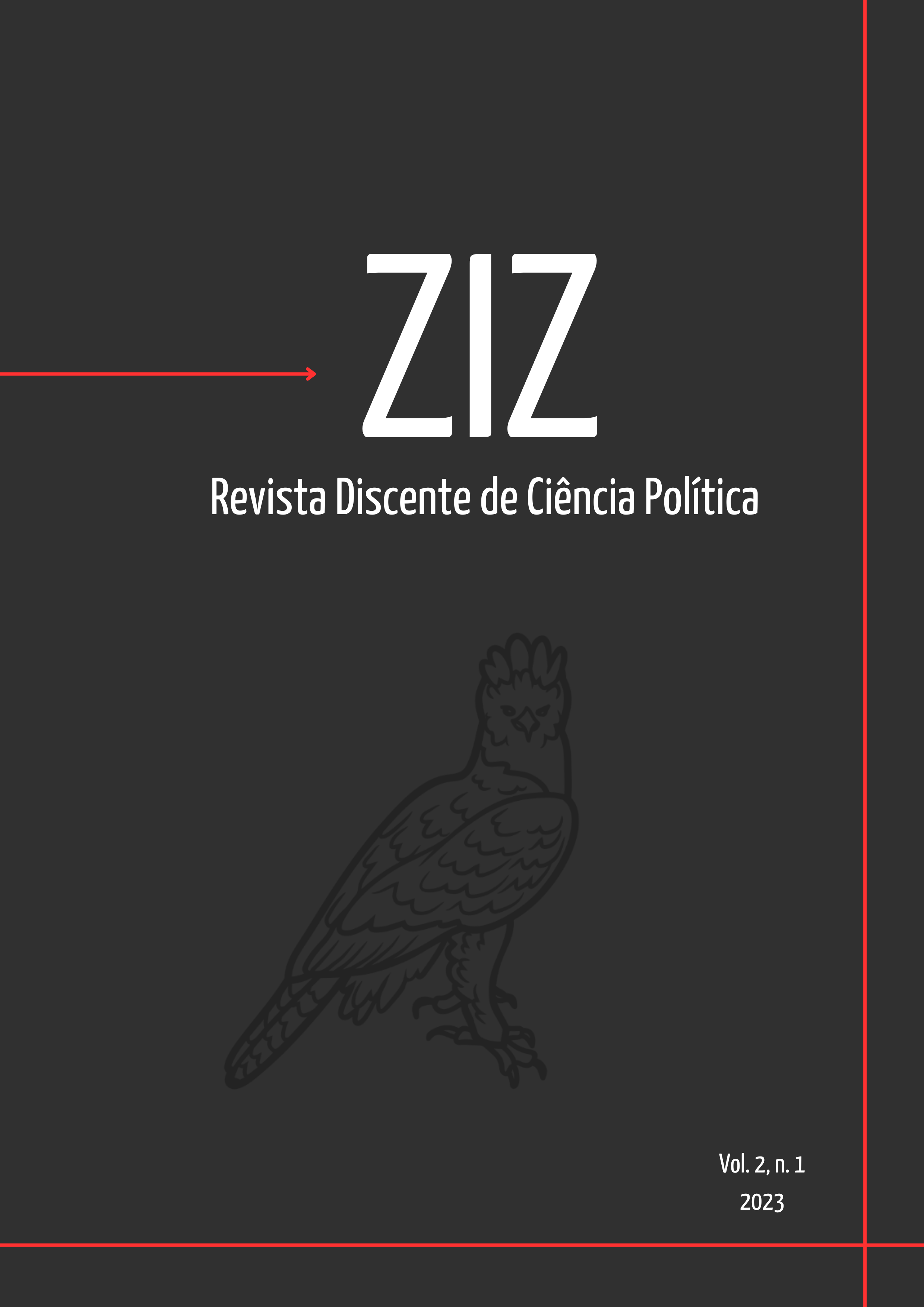Distortions of the Past
Collective Memory and the Military Coup of 1964
DOI:
https://doi.org/10.22409/ziz.v2i1.54355Keywords:
Class Struggle, Neoliberalism, Military Coup, DenialismAbstract
The following article is dedicated to discussing the distortions of the Brazilian collective memory and, specifically, the motivations behind the disputes over the narratives of the events of the democratic ruptures of 1964. The presented arguments point to the confluence of factors such as the alliance of the military and the ruling classes and the neoliberal model with its effects on everyday life, with the aim of erasing collective consciousness about social tensions or class struggle. To this end, the text makes use of the considerations of professors Marcos Napolitano and Rodrigo Turin about their reflections on denialism and historical revisionism and on the “acceleration of time” as a dimension of the social dynamics of neoliberalism, respectively. As an interpretative key, these concepts open valuable elucidations for all those interested in a broad reading of the political and social spectrums of contemporary Brazil. It is hoped that this essay will serve as a reflexive tool to help future works that aim to understand the current conjuncture based on the dispute over national collective memory, specially regarding the greatest institutional trauma perceived in the last century: the military dictatorship. Bringing up the discussion about the memory of the most recent period of democratic rupture is a fundamental element to explain the class struggle in Brazil, since the political forces in tension, to a large extent, can be considered from the perspective of continuity.
Downloads
References
ABREU, Marcelo de Paiva. A Ordem do Progresso: cem anos de política econômica republicana. Rio de Janeiro: Campus, 1990.
BETHELL, Leslie. (org.) História da América Latina após 1930: Estado e política. – 1ªed., 1ª reimpr. – São Paulo: Editora da Universidade de São Paulo, 2015.
BRASIL. Diário do Congresso Nacional de 29 de agosto de 1961. p.167. Disponível em: https://www2.camara.leg.br/atividadelegislativa/plenario/discursos/escrevendohistoria/emenda-parlamentarista/pdf/diario-do-congresso-nacional-de-29-08-61. Acessado em: 05/12/2021.
FICO, Carlos. História do Brasil Contemporâneo. 1ª ed., 2ª reimpressão. São Paulo: Contexto, 2019.
FICO, Carlos. O Golpe de 1964: momentos decisivos. Rio de Janeiro: FGV, 2014.
HERRERA, Genaro A. El Pensamiento Político de los Militares: estudios sobre Chile, Argentina, Brasil y Uruguay. – 2ªed. – Santiago: Centro de Investigaciones Socioeconómicas, 1986.
HIPPOLITO, Lucia. De Raposas e Reformistas: o PSD e a experiência democrática brasileira (1945-1964). Rio de Janeiro: Nova Fronteira, 2012.
NAPOLITANO, Marcos. Negacionismo e Revisionismo Histórico. In: PINSKY, Jaime; PINSKY, Carla Bassanesi. Novos Combates pela História: desafios – ensino. Campinas: Contexto, 2021. p. 85-114.
NAPOLITANO, Marcos. História do Regime Militar Brasileiro. São Paulo: Contexto, 2014.
PEREIRA, Mateus; ARAUJO, Valdei. Atualismo 1.0: como a ideia de atualização mudou o século XXI. Mariana, MG: Editora SBTHH, 2018.
TURIN, Rodrigo. Tempos Precários: aceleração, historicidade e semântica neoliberal. Rio de Janeiro: Zazie, 2019.
: o Brasil entre armas e livros. Lucas Ferrugem e Filipe Valerim. Porto Alegre: Brasil Paralelo, 2019. 1 DVD (127 min).
Published
Versions
- 2023-12-07 (2)
- 2023-12-07 (1)
How to Cite
Issue
Section
License
Copyright (c) 2023 Ziz - Political Science Student Journal

This work is licensed under a Creative Commons Attribution 4.0 International License.



